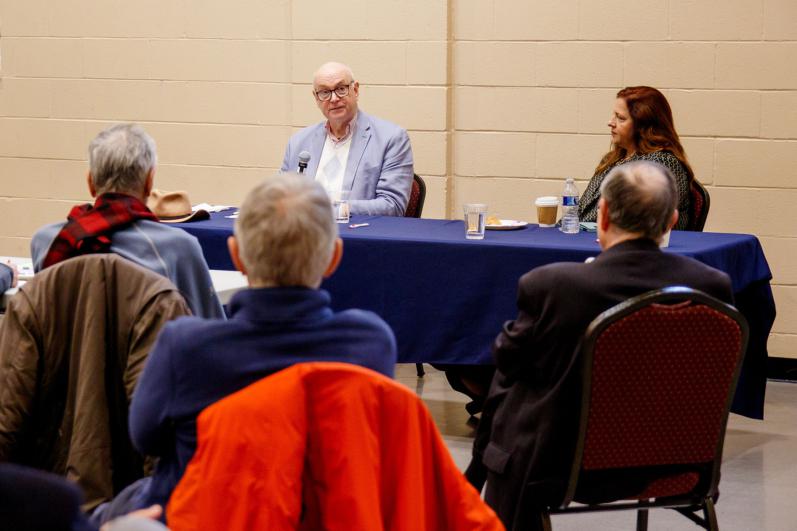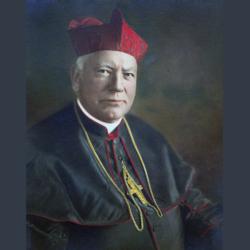Catholic lawyers, physicians sponsor talk to consider 'Post-Dobbs Landscape'
CAMBRIDGE -- On June 24, 2022, when the Supreme Court overturned Roe v. Wade with its decision in Dobbs v. Jackson Women's Health Organization, Dr. Christina Francis's cell phone "blew up."
Francis is an Indiana-based OB-GYN and CEO of the American Association of Pro-Life Obstetricians and Gynecologists. Some of the text messages she received after the Dobbs decision were celebratory. Others, from her medical colleagues, were gravely concerned. They didn't know whether they could continue treating ectopic pregnancies and other life-threatening pregnancy complications.
"What on Earth?" Francis remembered thinking to herself. "Are you kidding me? We should know better than this."
Francis considers such questions to be examples of "disinformation" about abortion, as well as the medical and legal practices surrounding it. In order to clear up such misconceptions, Francis and University of Massachusetts law professor Dwight Duncan participated in a talk entitled "The Post-Dobbs Landscape: Medical and Legal Dimensions" at the Harvard University Catholic Center at St. Paul Parish on Jan. 13. The talk was presented by the Harvard Catholic Forum in collaboration with the Guild of St. Luke for Catholic physicians and the Catholic Lawyers' Guild of the Archdiocese of Boston.
Guild of St. Luke President Dr. John Barravechio, who moderated the talk, said that it was convened in order to combat "a lot of disinformation and misinformation, including from the highest levels of state and federal government."
Francis said that people on both sides of the abortion debate define terms in different ways, including the very word "abortion." She criticized the "medical definition of abortion," which differs from the common definition. In medicine, the word "abortion" can refer to the ending of a pregnancy prior to 20 weeks for any reason, including natural ones like miscarriage.
"This is what's being used to sow confusion about what it is we're talking about and what is being restricted when states pass pro-life protections," she said.
She said that there is no state where it is illegal to treat ectopic pregnancies or other life-threatening complications, and that such complications can be treated in a way that "respects the dignity of the unborn child" and does not seek to end its life.
"People that argue that abortions are necessary beyond the point of viability are lying," she said. "They are never, ever, ever necessary. Beyond the point of viability, you intervene and deliver."
To her, OB-GYNs are special because they are responsible for two patients at once -- the pregnant woman and her unborn baby. Therefore, contrary to the common pro-abortion argument, she does not view abortion as healthcare.
"It intentionally ends the life of one of my patients and provides no health benefit to my other patient," she said. "So why on earth would I recommend this?"
She believes there is a responsibility to protect the life of the "fetal patient" and provide "excellent healthcare" to the mother. This includes fully explaining the potential negative health effects of abortion, including chemically-induced abortion, which is now how the majority of abortions take place. Due to a loosening of FDA regulation over the last decade, Francis said, medication that causes abortion is more easily accessible than ever, regardless of potential negative side effects.
"Women and their children deserve better than this," she said. "I think no matter where someone stands on the issue of abortion, we should all be in agreement that this is medical malpractice."
In his talk, Duncan argued that the reasoning of Roe v. Wade was flawed because there is no mention of abortion in the Constitution. He expressed his hope that the 14th Amendment will someday be interpreted to protect all life, including the unborn. However, the culture that produced Roe v. Wade, and opposes its overturn, presents a challenge.
"Many have a correct sense of compassion toward a woman in a tough situation," he said, "and incorrectly have little or no compassion for an unborn child in the womb."
In all seven states where abortion has been put to a public vote, the pro-life cause lost. Ten more states will hold votes about abortion this year.
"The pro-life side will probably lose most of them, and maybe all of them, I'm sad to say," Duncan said.
Why is the pro-life movement losing at the ballot box? Duncan believes that the U.S. has spent so much time in "an abortion culture" that voters have become desensitized to it.
"At the moment, America isn't a pro-life country," he said. "It was in 1973, when Roe was enacted, but the corrupting effects of that decision are being felt now."
He compared the situation to St. Augustine's "The City of God," which blamed paganism and immorality for the fall of the Roman Empire.
With Roe v. Wade, he said, "unjust justices took a nation's pagan culture and multiplied it."
Despite his profession, Duncan believes that legal challenges are only a fraction of the work that needs to be done in the pro-life movement. He said that pro-life activists can make the most impact by encouraging a cultural shift in the way that the U.S. views abortion. To him, that means having civil dialogue with people who hold opposing views in order to change hearts and minds on the individual level.
Both he and Francis described the pro-life cause as a culture war, but one that can be waged peacefully. They described what they have done to articulate the moral, medical, and legal arguments against abortion to their colleagues in their respective professions.
"We did not go into medicine to destroy life," Francis said. "We went into medicine to protect it and promote it."



















